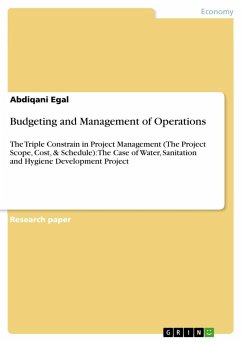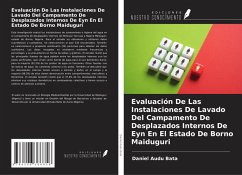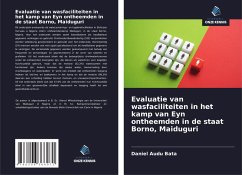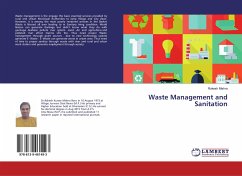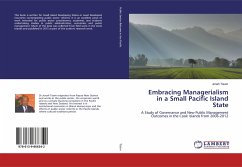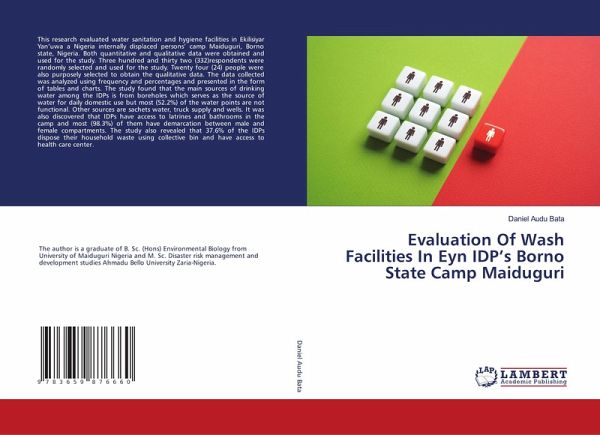
Evaluation Of Wash Facilities In Eyn IDP's Borno State Camp Maiduguri
Versandkostenfrei!
Versandfertig in 6-10 Tagen
40,99 €
inkl. MwSt.

PAYBACK Punkte
20 °P sammeln!
This research evaluated water sanitation and hygiene facilities in Ekilisiyar Yan'uwa a Nigeria internally displaced persons' camp Maiduguri, Borno state, Nigeria. Both quantitative and qualitative data were obtained and used for the study. Three hundred and thirty two (332)respondents were randomly selected and used for the study. Twenty four (24) people were also purposely selected to obtain the qualitative data. The data collected was analyzed using frequency and percentages and presented in the form of tables and charts. The study found that the main sources of drinking water among the IDP...
This research evaluated water sanitation and hygiene facilities in Ekilisiyar Yan'uwa a Nigeria internally displaced persons' camp Maiduguri, Borno state, Nigeria. Both quantitative and qualitative data were obtained and used for the study. Three hundred and thirty two (332)respondents were randomly selected and used for the study. Twenty four (24) people were also purposely selected to obtain the qualitative data. The data collected was analyzed using frequency and percentages and presented in the form of tables and charts. The study found that the main sources of drinking water among the IDPs is from boreholes which serves as the source of water for daily domestic use but most (52.2%) of the water points are not functional. Other sources are sachets water, truck supply and wells. It was also discovered that IDPs have access to latrines and bathrooms in the camp and most (98.3%) of them have demarcation between male and female compartments. The study also revealed that 37.6% of the IDPs dispose their household waste using collective bin and have access to health care center.






